Партнерські організації
000257646 — PERFECT
Координатор
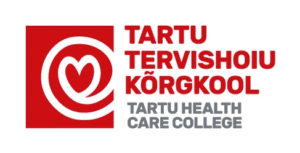
Тарту, Естонія
Website: https://www.tartuh.ee
Дізнатись більше
Тартуський університет прикладних медичних наук (колишній Тартуський коледж охорони здоров'я)
Email: nooruse@nooruse.ee
У 1811 році професором хрестоматологом Дойчем при акушерській клініці Тартуського університету було засновано школу акушерок; ця школа акушерок вважається попередником Тартуського коледжу охорони здоров’я (Tartu Tervishoiu Kõrgkool/Tartu Applied Health Sciences University). Протягом своєї історії навчальний заклад змінював багато назв, але досі надає освіту та підготовку в різних галузях охорони здоров’я та на різних рівнях.
Після відмінних результатів міжнародної акредитації у 2004 році коледж юридично почав функціонувати як вищий прикладний навчальний заклад. У 2011 році Тартуський коледж охорони здоров’я відкрив свої двері в новому навчальному корпусі.
Є 4 навчальні факультети: кафедра медсестринства та акушерства, кафедра радіографії та біомедичної лабораторної науки, кафедра фізіотерапії та екологічної гігієни, кафедра професійної освіти. Сьогодні в університеті навчається понад 1500 студентів за 14 освітніми програмами. Найпопулярнішою програмою є медсестринство (як бакалаврського, так і магістерського рівня), щорічно до цієї програми приєднуються понад 250 студентів. Понад 150 співробітників забезпечують високоякісну підготовку студентів, які здобувають ступені магістра, бакалавра та професійної освіти.
Університет встановив тісні зв’язки з майже 80 медичними навчальними закладами з понад 20 країн ЄС та інших країн. За останні роки коледж реалізував понад 20 проектів, які розширили його можливості у сфері співпраці, координації, цифровізації та дидактики вищої освіти в галузі медицини та охорони здоров’я.
Численні міждисциплінарні дослідницькі групи коледжу провели різноманітні національні та міжнародні дослідницькі та навчальні проекти з вирішення практичних питань охорони здоров’я.
Тартуський університет прикладних медичних наук створив орган, що приймає стратегічні рішення в галузі досліджень та розробок, який координує діяльність у сфері досліджень та розробок та надає інформацію про стратегічні напрямки, викладені в Плані розвитку університету та Плані дій.
Пріоритетні напрямки досліджень TTKK включають:
– навчання та викладання (ефективність практичного навчання (громадська робота в рамках навчального процесу та її вплив на організацію навчання), вплив дистанційного навчання (орієнтація на студентів, викладачів, організація навчання), доцільність методів оцінювання та критеріїв оцінювання для досягнення результатів навчання, розробка навчальних програм (потреба в інноваціях, методологія);
– обізнаність суспільства щодо здоров’я (харчування; фізична активність; психічне здоров’я; профілактика інфекційних захворювань, навколишнє середовище та
здоров’я; зменшення небезпек для здоров’я, безпека пацієнтів; освіта людей у сфері охорони здоров’я, медичні технології).
Дослідження дозволяють викладацькому складу університету інтегрувати дослідження, засновані на доказах, з повсякденною практикою та використовувати результати досліджень у навчанні. Результати досліджень впроваджуються у професійний розвиток та пропаганду громадського здоров’я. Коледж гнучко реагує на дослідницькі потреби суспільства та ринку праці, а також планує свої дослідження у співпраці з підприємствами, установами державного сектору та організаціями третього сектору.
TTKK є активною навчальною та дослідницькою установою, яка бере участь та координує численні проекти.
Є кілька проектів, які варто згадати стосовно перспективного проекту PERFECT, включаючи проекти, пов’язані з цифровізацією охорони здоров’я та освіта:
– VirPed (Віртуальна дитяча лікарня для навчання педіатричної медсестринства: 2023-1-FI01-KA220-HED-000166447) розробляє
інноваційні методи навчання та викладання, використовуючи віртуальну реальність та віртуальне моделювання як частину викладання.
– Learn4Green (23PCS0003 – 2023-1-BE01-KA220-HED-00015573) створює міжнародний, спільний та
багатопрофільний онлайн-курсовий модуль, зосереджений на довкіллі, сталому розвитку та здоров’ї, використовуючи змішані та дистанційні методи навчання.
пов’язаний з підготовкою медсестер:
– eMed-PASS (2017-1-EE01-KA203-034884) покращив якість та актуальність вищої освіти в галузі бакалаврської освіти медсестер у різних країнах ЄС, зокрема в країнах Балтії та Фінляндії.
-Take Care (2019-1-DE02-KA202-006562) детальніше розглянули використання ігрового підходу в освіті медсестер та впровадження передового досвіду.
– GENEDU (610060-EPP-1-2019-FI-EPPKA2-CBHE-JP) оновив навчальну програму з медсестер у вищих навчальних закладах Китаю.
Партнери
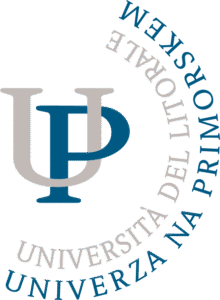
Koper, Slovenia
Website: www.upr.si
Learn more
University of Primorska (UP)
Email: projektna.pisarna @upr.si,
Phone: +38656117539
The University of Primorska (UP) is a medium-sized, internationally active university with 5,745 students, of whom 1,122 (or 19.5%) are from 39 foreign countries. It employs 730 people. There are 480 researchers and higher education teachers at UP, of whom 59 (or 12.3%) are from abroad. UP hosts more than 200 foreign researchers each year and has 190 PhD students enrolled. In 2022, UP became part of Transform4Europe (T4EU), a European university bringing together over 150,000 students and 10,000 researchers. It will become a full member in 2023 and, in addition to UP, 9 other universities and one associate member are affiliated to T4EU. In addition, UP is included in the 38 European Most Innovative Higher Education Institutions (ENIHEI), an initiative of the European Commissioner for Innovation, Research, Culture, Education and Youth, Mariya Gabriel. ENIHEI provides a forum for the exchange of knowledge, ideas and experiences in the field of innovation activities in higher education and the promotion of creativity, entrepreneurial mindsets and talent enhancement.
UP offers 79 study programmes at all three levels, 16 of which are also offered in English. In addition, UP organises 5-10 international summer schools on various topics each year and over 10 international scientific conferences. The annual budget of the UP in 2022 is EUR 35.04 million, of which EUR 20.74 million is obtained by the UP to finance higher education activities and the remaining funds (40%) through various schemes to promote research and development work. In 2024, the UP will implement 264 projects, including 10 Horizon 2020 / Horizon Europe projects, 81 ARRS research projects, 12 ARRS research programmes (five of which are parent programmes), 35 bilateral projects with organisations from 10 countries, 29 Erasmus+ projects to strengthen partnerships, 7 Erasmus+ projects to strengthen mobility, 20 projects supported by the Structural Funds and cross-border programmes.
The UP FACULTY OF HEALTH SCIENCES’S (UP FHS) scientific research activities focus on the fields of nursing,
nutrition, dietetics, movement, and basic natural and medical sciences. The researchers are part of the UP FVZ 2413-001 research group, which currently consists of 66 researchers and professional/technical staff.
The research activities of the UP Faculty of Health Sciences focus on the fields of nursing, dietetics, movement, and basic natural and medical sciences. The faculty implements undergraduate programmes Nursing, Kinesiology, Physiotherapy and Nutritional Counselling – Dietetics; Master programmes Nursing, Kinesiology, Physiotherapy, Dietetics, and Physical Education, and doctoral programmes Kinesiology and Prevention for Health. One mandatory and one elective course in English for Nursing and Healthcare, both in the scope of 3 ECTS, are provided to students of the first-cycle programme Nursing. Other English courses implemented at the faculty also deal with topics in English for Healthcare, namely courses for first-cycle students of Nutritional Counselling – Dietetics (3 ECTS), and Kinesiology (3 ECTS), and an elective course for Master students of Dietetics (3 ECTS). They all employ interactive exercises enabled by the Moodle classroom platform.
The scientific research of the UP Faculty of Education includes the development of modern didactic models with multimodal and IT approaches, and the development of modern didactics of different subjects, including languages, for all levels of education.
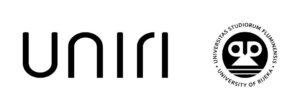
Rijeka, Croatia
Website: https://uniri.hr
Learn more
University of Rijeka (UNIRI)
Email: ured@uniri.hr
Phone: +385 514 06592
The University of Rijeka (UNIRI) is the fundamental educational and research institution in the western part of Croatia. Founded in 1973, the University of Rijeka has matured into a modern European university and center of excellence whose impact extends beyond the region. With a total of 15 faculties, 1 academy and 13 specialized research centres, with over 160 study programmes it is a research, science, and education-oriented university that supports social and economic development in its community, the City of Rijeka, and the wider region. The University of Rijeka has over 16000 students, over 1970 employees, and almost 1200 researchers. By building a state-of-the-art campus, the University of Rijeka has visibly improved its teaching methods and scientific structure, while attending to each student’s and staff member’s living and working needs.
The University of Rijeka is the first university in Croatia to have signed “The European Charter for Researchers” and “The Code of Conduct for the Recruitment of Researchers”, thereby accepting the European Commission’s initiative aiming to increase employability and promote research careers as vital elements in the strategy of economic growth, employment, and setting up the European Research Area. Also, the University of Rijeka was the first to sign the European Commission’s Charter for participation in the “Group for Human Resources Strategy Implementation”. By signing the above-mentioned charters, UNIRI has pledged to implement these documents at the University of Rijeka, which is one of the strategic goals set in the University of Rijeka strategies.
The University of Rijeka was the first Croatian University to set a development strategy. It focuses on excellence, quality assurance, life-long learning, active collaboration with the local community & economy, and active inclusion into the EHEA & ERA. Since 2019, UNIRI is a member of the E+ European Universities Initiative: Young Universities for the Future of Europe (YUFE) and from 2021 the member of the Young European Research Universities Network (YERUN). The University of Rijeka is the first Croatian University to have developed a Gender Equality Plan.In 2019 UNIRI signed a Declaration on European Open Science thereby emphasizing the importance of all researchers in the EU having access to an open-by default, efficient, and cross-disciplinary research data environment based on efficient usage methodology and supported by FAIR Data Principles. In 2021 the Open Science Policy of the University of Rijeka was adopted and the University signed The Declaration on Research Assessment (DORA). In 2022 UNIRI became one of the first signatories of the Coalition for Advancing Research Assessment (CoARA), which will enable knowledge exchange among members in advancing in the process of research assessment reform. The University of Rijeka has extensive experience in managing EU projects with many successfully implemented international and EU projects in a diversity of EU R&D programmes and funds (ESF, ERDF, Erasmus+, Horizon 2020, Horizon Europe). UNIRI has been included in one of the most recognized rankings of world universities–QS World University Rankings, thus entering among 4.5–5.5% of the best universities in the world. In 2021, UNIRI has also been included in the Times Higher Education World University Rankings 2022. The majority of UNIRI projects fit into funding schemes related to higher education and research but also several large infrastructural projects from the European Regional Development Fund (ERDF) worth around
50 million EUR have been successfully implemented over the past years. Currently, the University of Rijeka participates in numerous research, infrastructure, and cooperation projects, mainly Horizon 2020 and Horizon Europe, Erasmus+, European Regional and Development Fund, and European Social Fund projects.
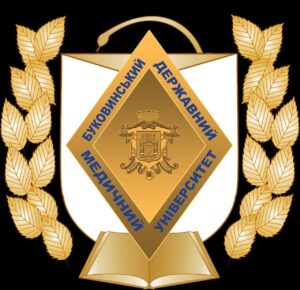
Chernivtsi, Ukraine
Website: www.bsmu.edu.ua
Learn more
Bukovinian State Medical University (BSMU)
Email: inter.project@bsmu.edu.ua
Phone: +380 372 553 754
Bukovinian State Medical University is a top medical higher education institution in Ukraine, located in Chernivtsi (the Western region of the country). The BSMU mission is to enhance healthcare both locally and globally through exceptional education, research, and clinical care. The university continuously strive to meet the demands of society and make a positive impact by advancing educational excellence and scientific innovation. The institution prepares healthcare professionals to practice evidence-based medicine and patient-centered care to the highest standards. It also produces research scholars who demonstrate excellence in knowledge, skills, and attitude. The learning ecosystem empowers continuous professional growth and development. BSMU is a comprehensive institution with six faculties, including ‘Medicine’, ‘Dentistry’, and ‘Pharmacy’, a college that offers courses in ‘Nursing’ and ‘Pharmacy’, an Institute for postgraduate education, an Innovative Development sector, a Center of Simulation Medicine and Innovative Technologies (COSMIT), a Medical-Psychological Center, an Educational and Scientific Laboratory, and a team of around 600 highly qualified academic staff. BSMU trains professionals in 16 specialties and has 50 departments of basic and clinical sciences, including the Foreign Languages Department. With a student body of approximately 4500 undergraduate students, including 1000 foreign students, and around 3000 postgraduate students, BSMU is committed to implementing cutting-edge teaching and training methods.
BSMU is a leading institution in medical education, offering a wide range of bachelor’s, Master’s, and Ph.D. programs both in English and in Ukrainian, as well as international collaboration. In fact, in 2019, BSMU was recognized as the top Medical University in Ukraine by the National Erasmus office. The project will involve the Department of Foreign Languages and the Grant Policy Department to provide the necessary support for successful project implementation.
BSMU has extensive expertise and over 30 years of experience in teaching English to medical and nursing students, as well as healthcare professionals. The university also offers a wide range of study programs in medicine and nursing in English. One of the main priorities of our university is the development and implementing the up-to-date educational technologies, including hybrid and flipped class technologies, simulations, PBL, TBL, and student-centered approach.
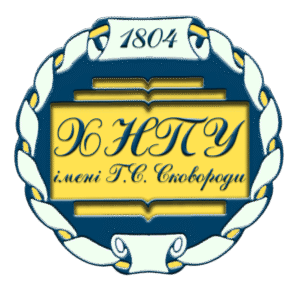
Kharkiv, Ukraine
Website: http://hnpu.edu.ua/
Learn more
H.S. SKOVORODA KHARKIV NATIONAL PEDAGOGICAL UNIVERSITY
Email: prorector_berezhna@hnpu.edu.ua
Phone: +380572680619
It is one of the oldest higher educational institutions of Ukraine, founded in 1804. The University provides European-level teacher education and carries out research in a wide range of areas at its 10 faculties and 42 departments. The academic and teaching staff consists of about 424 full-time employees. Currently, the University has 6000 students and 122 curricula.
H.S.Skovoroda KhNPU educates teachers for Kharkiv and neighbouring regions, thus performing a socially important function. The university implements inclusive education via the Inclusive Education Centre, Skovoroda-Hub and Kinder-Hub for mentally-impaired children. The university offers pre-service teachers’ professional training on working with SEN children at all the faculties, focusing on organizing corrective and developmental environment, health protection, rehabilitation processes, prevention of difficulties in children’s upbringing and education.
The university offers its students and staff e-access to all the university facilities: from e-management to libraries, learning environments and platforms. H.S.Skovoroda KhNPU participated in implementation of the Project Module Jean Monet “European Integration of Ukraine under Industry 4.0”; Osteuropa-Instituts der Freien Universität Berlin; Alexander von Humboldt-Stiftung (University of Greifswald); DAAD, NAWA, Max Weber Foundation fellowships, Erasmus+ KA1 and KA2 projects AMUSE (101179404), LECTURE (101179602), “Sustainable Language Education and Media: Bridging the Gap between EU – Ukraine”, Østfold University College (000137486), Lutheran University of Applied Sciences Nuremberg academic mobility, participated in the implementation of the project supported by the Ministry of Education and Science of Ukraine on preschool and primary school education with Lego Foundation (annually extended), EU-Finnish-Ukrainian project “Learning together” and the UNICEF funded Kinder-hub project. In 2023, the University became a member of a consortium in Horizon Europe program. The same year, the university joined the project of “Studying the circulation of zoonotic influenza A viruses in a natural reservoir” (2021.01/0006).
The Science, Special and Health Protection Education Faculty at H.S. Skovoroda KhNPU has been operating since 1962. Among others, its students major in Health and Practical Psychology. The students of this faculty are taught English for Special Purposes for pre-service teachers (here focusing on Science, Special education and Health Protection) General English is taught at the Faculty of Foreign Philology of H.S. Skovoroda KhNPU, where it is compulsory for the 2nd year undergraduates to study the topic of Healthcare.
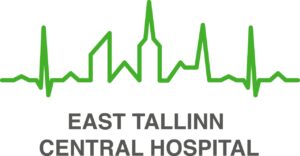
Learn more
East Tallinn Central Hospital
East Tallinn Central Hospital is one of the largest hospitals in Tallinn, consisting of seven clinics: Diagnostic Clinic, Internal Medicine Clinic, Eye Clinic, Women’s Clinic, Surgery Clinic, Rehabilitation Clinic, and Nursing Care Clinic. We welcome patients at the outpatient clinics of our Ravi, Magdaleena, Tõnismäe and Järve units.
More than 2500 people work in our hospital, of which over 400 are doctors and more than 1000 are nurses. The hospital’s services support the smooth operation of medical activities.
The hospital mission is to be patient-centred and innovative providing the best care for every patient, thereby positively impacting the health of the Estonian population. We cooperate to contribute to the enhancement of social security in society.
This mission is supported by: the professionalism and human-centric care of the hospital employees,
up-to-date evidence-based healthcare, long-standing traditions and a collaborative network, and
openness and courage to initiate change.
East Tallinn Central Hospital core values are:
PROFESSIONALISM
We provide up-to-date, high-quality, evidence- and experience-based healthcare because:
we are innovative and develop the necessary areas to provide the best healthcare
we are a learning and teaching organisation; we consider self-improvement and sharing our knowledge and experience important
we value scientific research
HUMANITY
We are respectful and considerate towards people and the environment because:
we are honest and open
we care about the needs of our patients and their loved ones
we notice and recognise our colleagues
we protect the environment
We are understanding and friendly in our attitudes and communication because:
we value professional communication and good service
we consider the wishes of the patients to maintain trust
COOPERATION
Our cooperation is multi-directional because:
we work with patients and their loved ones to find the best solutions
we work in multidisciplinary collaboration with colleagues to achieve the best treatment outcomes
patient-oriented activities are our joint effort
we work with external colleagues to provide patients with reassurance about continuity of care communication with partners is based on openness and equal partnership
Collegiality and consideration for others are important in teamwork because:
we find compromises for a common goal
we adhere to agreements
we are solution-oriented
we provide constructive and developmental feedback
VISION
We are a health-promoting and people-oriented Estonian hospital where every patient receives high-quality and respectful healthcare, and the hospital staff has the knowledge, skills, motivation and supportive environment to ensure this.
Based on our current situation, our strengths, challenges, stakeholder expectations, and the hospital’s vision and three-year development needs, we have defined our development goals in four strategies:
Patient-centricity and development of treatment activities
Retention and development of staff
Development of treatment, work and IT environments
Responsibility as a hospital
We have created an action plan that supports the implementation of our development goals. It describes in detail the planned activities, responsible parties, schedule and necessary resources needed to ensure goal achievement.
